Final poll predicts huge win as voting closes in Australia’s same-sex marriage vote
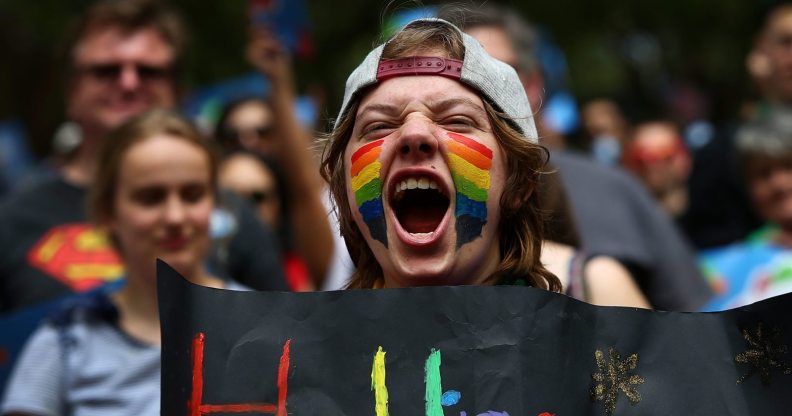
(Getty)
Voting has closed in Australia’s historic same-sex marriage ballot.
Almost 13 million Australians have returned their surveys in the country’s non-binding postal vote on marriage equality.
An incredible 78.5% of eligible Australians had their say – a bigger turnout than in the UK’s EU referendum.
As counting begins a final poll by Guardian Australia predicts a huge lead for the Yes camp, with final results to be revealed on 15 November.
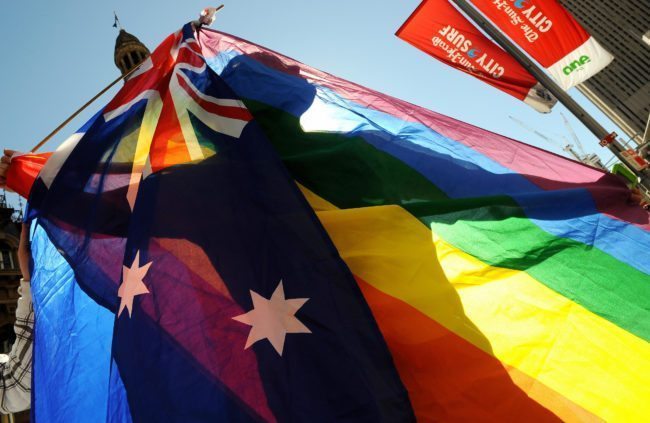
(TORSTEN BLACKWOOD/AFP/Getty Images)
64% of those who voted backed Yes, according to the poll, up 4% from similar polls in recent weeks.
31% are believed to have voted No.
All public polls conducted since ballots were first issued have shown Yes in the lead, with support ranging between 55% to 66%.
More voters over the age of 55, who are more likely to vote No, say they have voted in the survey (94%) than people under the age of 35 (80%).
Groups most likely to have voted yes are Greens party voters (92%), Labor voters (79%), those aged 18-34 (77%) and women (69%).
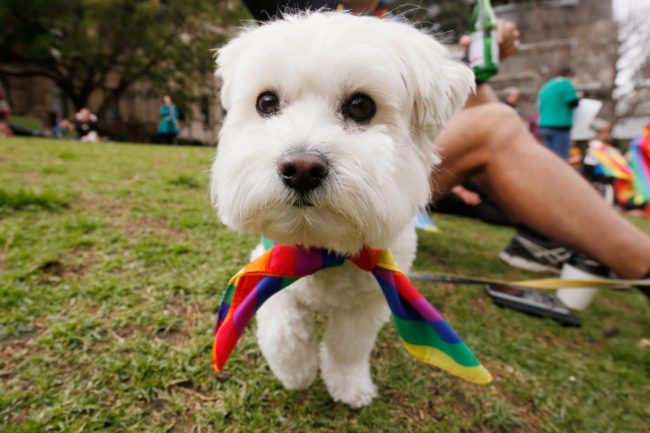
The campaign has been dogged by homophobic attacks from the No campaign, including shocking posters which compared gay people to child abusers.
Opposition Labor leader Bill Shorten warned the campaign would legitimise anti-LGBT bigotry.
Tiernan Brady of the Equality Campaign said he believed equality campaigners have “confidently won the argument.
“I think the Australian people have seen through it… I think the public have made their mind up.”
However a victory in the national postal ballot might not mean any laws are changed in Australia.
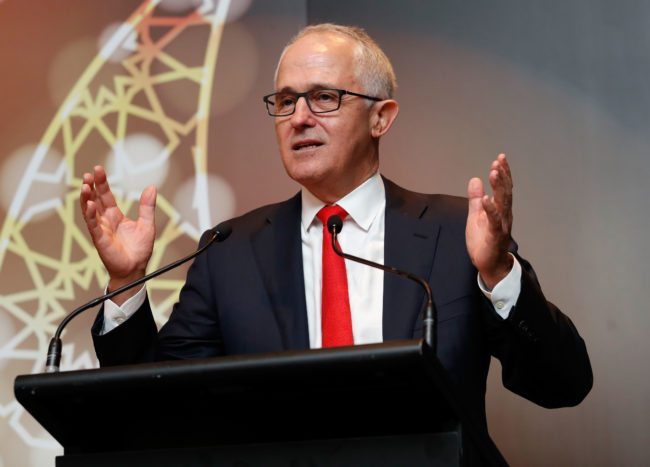
The ballot is only advisory, leaving decisions on whether to change marriage law to Australia’s government.
Prime Minister Malcolm Turnbull supports same-sex marriage, but many in his right-wing government are opposed to the move.
He has previously said that same-sex couples could be married by the end of the 2018 if voters back Yes, but experts say this is highly unlikely.
Hardline anti-LGBT MPs within the governing Liberal-National Coalition say they will not be conceding – even if the public gives a strong backing for equality.
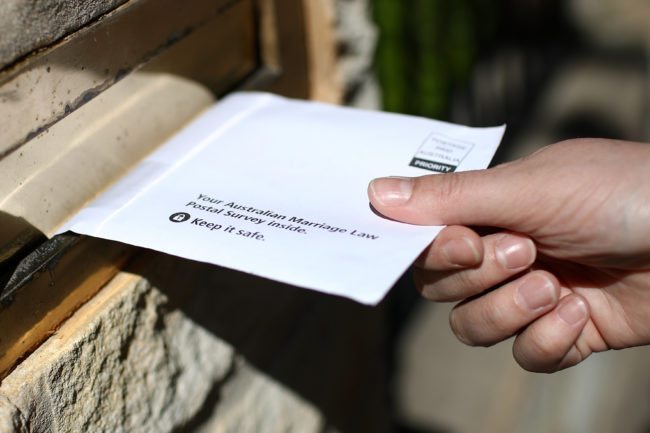
Same-sex marriage ballot (Photo by Cameron Spencer/Getty Images)
Instead, they will attempt to table a string of amendments to the eventual marriage bill.
The Nationals and a powerful right-wing faction of the Liberals – including prominent members of Turnbull’s Cabinet – are strongly opposed to equal marriage, while centrists and the youth wing of the Liberals are in favour of reform.
The public vote was only called by Turnbull as a compromise between the two groups after MPs began openly discussing a leadership challenge or rebellion against him.

